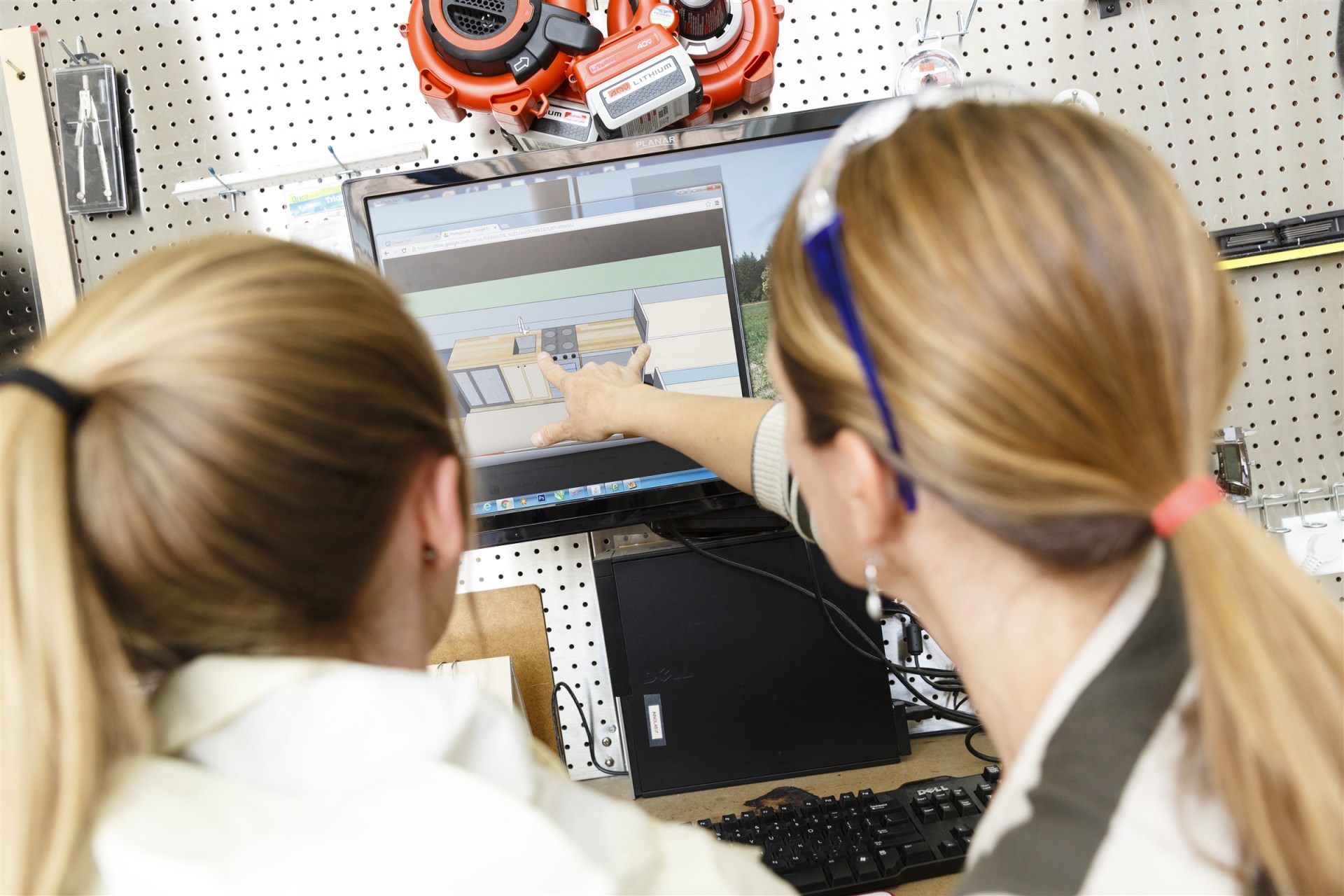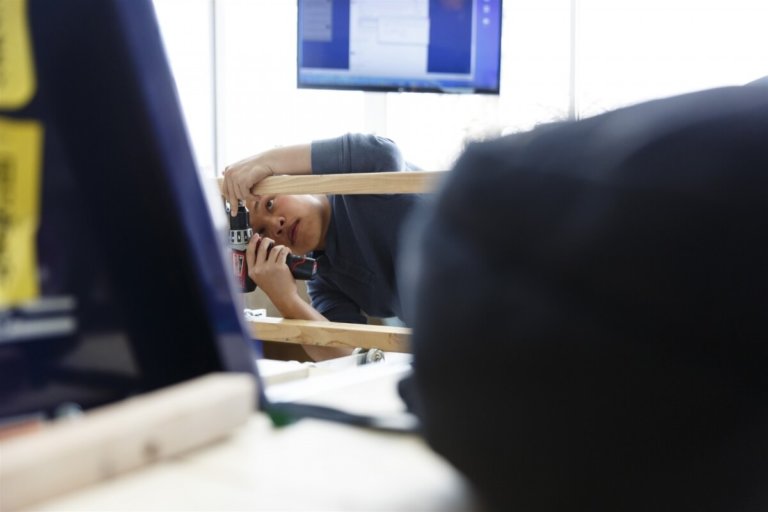 Education is operating in a unique space today, somewhere on the frontier between the human capacity to know and the human capacity to create technology that knows better. For educators, this reality sparks the question: How might we prepare students to thrive in an unknowable future?
Education is operating in a unique space today, somewhere on the frontier between the human capacity to know and the human capacity to create technology that knows better. For educators, this reality sparks the question: How might we prepare students to thrive in an unknowable future?
Several Colorado Academy faculty members have explored this question for the past decade, and one of the results is the launch this trimester of the REDI Lab, a new program that will afford CA juniors the time and support to work on big projects of their choosing as a part of their learning process. REDI is an acronym that represents the cornerstones of the program: Research, Entrepreneurship, Design, and Inquiry.
Nine students were admitted to the REDI Lab this year, and their work will begin with the spring trimester. Participants will be required to maintain their work in their traditional core CA classes while participating in the program. Initial ideas for student projects include: building a platform for maker enterprises, exploring the economics of meaning, producing a spoken word portfolio, redesigning the airline industry, documenting human experience, and studying philosophy in 21st century contexts.
Says project co-director and Upper School faculty member, Paul Kim, “At the core of the REDI Lab vision is the belief that there is some genius in every student and that genius needs a place to thrive. The Lab values talents that are not always immediately apparent in students and seeks to create uncommon, personalized paths for that talent to emerge. By emphasizing self-directed learning, the Lab seeks to help participants develop the agency and mindsets that they will need to navigate the unknowable future.”
The REDI Lab journey begins this spring with the following students: Ryan Antenucci, Greg Cain, Joanna Cotto, Aliyah Fard, Jayne Kay, William McCormick, Sebastian Skipwith, Paige Thomas, and Wyatt Westfall. Students will be blogging frequently about their experience and project development. Watch the CA website for updates.
